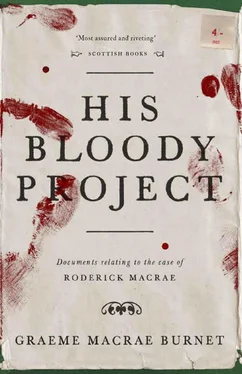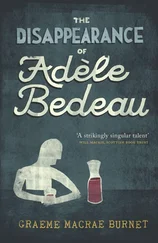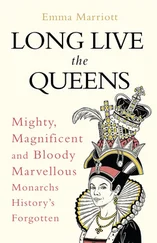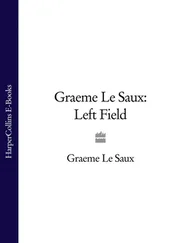Graeme Burnet - His Bloody Project
Здесь есть возможность читать онлайн «Graeme Burnet - His Bloody Project» весь текст электронной книги совершенно бесплатно (целиком полную версию без сокращений). В некоторых случаях можно слушать аудио, скачать через торрент в формате fb2 и присутствует краткое содержание. Год выпуска: 2015, Издательство: Contraband, Жанр: Современная проза, на английском языке. Описание произведения, (предисловие) а так же отзывы посетителей доступны на портале библиотеки ЛибКат.
- Название:His Bloody Project
- Автор:
- Издательство:Contraband
- Жанр:
- Год:2015
- ISBN:нет данных
- Рейтинг книги:5 / 5. Голосов: 1
-
Избранное:Добавить в избранное
- Отзывы:
-
Ваша оценка:
- 100
- 1
- 2
- 3
- 4
- 5
His Bloody Project: краткое содержание, описание и аннотация
Предлагаем к чтению аннотацию, описание, краткое содержание или предисловие (зависит от того, что написал сам автор книги «His Bloody Project»). Если вы не нашли необходимую информацию о книге — напишите в комментариях, мы постараемся отыскать её.
A brutal triple murder in a remote northwestern crofting community in 1869 leads to the arrest of a young man by the name of Roderick Macrae. There’s no question that Macrae is guilty, but the police and courts must uncover what drove him to murder the local village constable.
And who were the other two victims? Ultimately, Macrae’s fate hinges on one key question: is he insane?
His Bloody Project — читать онлайн бесплатно полную книгу (весь текст) целиком
Ниже представлен текст книги, разбитый по страницам. Система сохранения места последней прочитанной страницы, позволяет с удобством читать онлайн бесплатно книгу «His Bloody Project», без необходимости каждый раз заново искать на чём Вы остановились. Поставьте закладку, и сможете в любой момент перейти на страницу, на которой закончили чтение.
Интервал:
Закладка:
‘So you would conclude that he belongs to the hereditary criminal class which you previously described so eloquently?’
‘I am quite conscious, given the defence which you are putting forward in this case, that you wish me to answer in the affirmative. However, while the prisoner bears a certain resemblance to the urban criminal brood and this is undoubtedly due to his low breeding, I would not classify him as a member of the criminal classes; that is those classes who are born into crime and over whom crime exerts an irresistible pull.’
At this point, Mr Sinclair ‘gave every indication that the rug had been forcefully yanked from beneath his feet’. In a somewhat faltering fashion, he asked Mr Thomson to account for his conclusion.
‘It is quite straightforward, Mr Sinclair. One must look for the causes of crime not only in the hereditary material of the criminal, but also in his environment. While to educated men like ourselves, the Highland settlement might seem a squalid shanty, it is a paradise compared to the slums inhabited by the urban villain. The air is clean and free-flowing and, while the population lives in poverty, the vast majority of people labour honestly on the land or in some other low work. Petty thievery and swindling is to a great degree unknown in these parts. Thus the individual, no matter how base in their physical make-up or limited their mental capacity, is not brought up or nurtured in an atmosphere of criminality. The prisoner here may have been born into a life which would make a civilised man baulk, but he was not born into crime.’
There was a pause in proceedings while Mr Sinclair consulted with his assistant. Mr Gifford, it was reported, ‘leaned back in his seat, and, had it not been unseemly to do so, would likely have rested his feet on the table before him’. Those in the public gallery, perhaps not yet fully grasping the significance of the exchange, whispered among themselves. The Lord Justice-Clerk seemed content to allow a moment’s hiatus, before he asked Mr Sinclair if he had concluded his examination of the witness.
The advocate indicated that he had not and hastily put his next question to the witness: ‘We have heard the testimony of Dr Hector Munro, a general practitioner, who stated that the prisoner exhibits none of the normal outward markers of insanity or imbecility. Would you agree with this assessment?’
‘I would.’
‘But would you also agree that it is possible for a person who does not exhibit such signs to be regarded as insane?’
‘I would, yes.’
‘How could this be?’
‘Over these last decades our understanding of the functioning — or dysfunctioning — of the mind has been greatly augmented by the labours of my continental and English colleagues, such that there is now a general acceptance in the field of Criminal Anthropology, of the condition of moral insanity, or “mania without delirium” as it is sometimes termed.’
‘Could you describe what is meant by this condition?’
‘Briefly put, it consists of a morbid perversion of the affections without any concomitant impairment of the intellectual faculties. Thus an individual might appear to be fully cognisant of reality and entirely rational in his discourse, and yet be entirely without the moral sense. This is manifested by the habitual nature of the petty criminal who is quite powerless to refrain from thievery and, in the higher criminal — those guilty of murder, ravishment or infanticide — of a complete absence of remorse. The morally insane are entirely incapable of resisting their violent or criminal urges. These unfortunates are distinguished by the prevalence of malicious feelings, which often arise at the most trivial provocation. They see enmity where none exists and indulge themselves in great fantasies of revenge and mischief; fantasies which they are then powerless to resist acting upon.’
‘Would you thus aver that such individuals are not responsible for the deeds which they commit?’
‘I cannot speak to the legal point of view, but from the perspective of the student of Criminal Psychology, they cannot be regarded as responsible in the normal way, for such individuals are born — for whatever reason — without the moral sense. They do not have within their make-up the normal checks and balances of civilised men and women. As such they cannot be regarded as fully responsible for their actions. They are moral imbeciles and no more culpable for their condition than a cretin is for his.’
At this point, the Lord Justice-Clerk intervened to prompt Mr Sinclair to progress his examination of the witness from these ‘no doubt fascinating’ generalities to the present case. Mr Sinclair acquiesced, although not without first remarking on the necessity of acquainting the jurymen with current thinking in the field of Criminal Psychology.
‘Now,’ he continued, ‘the court has been read a statement in which the prisoner freely declares himself to be of sound mind. In your long experience of dealing with the criminal population, is it possible that a person who might make such a statement could still be regarded as insane?’
‘Quite possible, yes,’ replied Mr Thomson.
‘How could that be so?’
‘If a prisoner is labouring under some delusion, that delusion is as real to him as this court-room is to us. If a person is insane, he is, by definition, unable to recognise himself as such.’
‘I see,’ said Mr Sinclair, pausing to allow the jury time to absorb this statement. ‘With that in mind, what value would you place on the prisoner’s own declaration about his state of mind?’
‘None whatsoever.’
‘“None whatsoever”,’ Mr Sinclair repeated with a meaningful look to the jury.
The Lord Justice-Clerk here intervened: ‘For the sake of clarity, Mr Thomson, is it your evidence, that the prisoner is insane?’
‘My evidence is merely that if the prisoner were insane, he would not be aware of the fact. Indeed, were he to express the idea that he was insane, it would imply the opposite, since such a view would imply a degree of self-knowledge entirely absent from those not in possession of their reason.’
The Lord Justice-Clerk conferred for a moment with Lord Jerviswoode and then indicated that Mr Sinclair should proceed with his examination. He thanked him and continued. ‘Now, Mr Thomson, you have examined the prisoner with a view to ascertaining the state of his mind, have you not?’
‘I have.’
‘And what form did this examination take?’
‘I conversed with him at length on the subject of his crimes.’
‘And what were your findings?’
‘The prisoner is certainly of reasonable intelligence and he displayed a grasp of language exceeding what would be expected of one of such low breeding. To a large extent he conversed freely with me and without apparent discomfort. In common with the higher rank of criminal I have described, he showed no remorse for his acts; indeed, I would venture to say that he displayed a perverse pride in admitting them.’
‘And would you say that this is characteristic of those individuals suffering from the condition of moral insanity?’
‘This behaviour is indeed common to the moral imbecile, but it does not in itself signify moral insanity.’
‘In your answer to my previous question, you described the morally insane as…’ — he here read from a note handed to him by his assistants — ‘… harbouring “malicious feelings, which often arise at the most trivial provocation”.’
‘Yes.’
‘Now, we have heard here in evidence testimony describing the provocations caused to the prisoner and his family by the deceased Mr Mackenzie.’
‘Indeed.’
‘Whether one regards these provocations as trivial or otherwise, would you regard the prisoners desire to avenge himself against Mr Mackenzie as indicative of this condition of moral insanity?’
Читать дальшеИнтервал:
Закладка:
Похожие книги на «His Bloody Project»
Представляем Вашему вниманию похожие книги на «His Bloody Project» списком для выбора. Мы отобрали схожую по названию и смыслу литературу в надежде предоставить читателям больше вариантов отыскать новые, интересные, ещё непрочитанные произведения.
Обсуждение, отзывы о книге «His Bloody Project» и просто собственные мнения читателей. Оставьте ваши комментарии, напишите, что Вы думаете о произведении, его смысле или главных героях. Укажите что конкретно понравилось, а что нет, и почему Вы так считаете.












